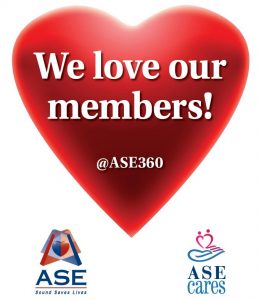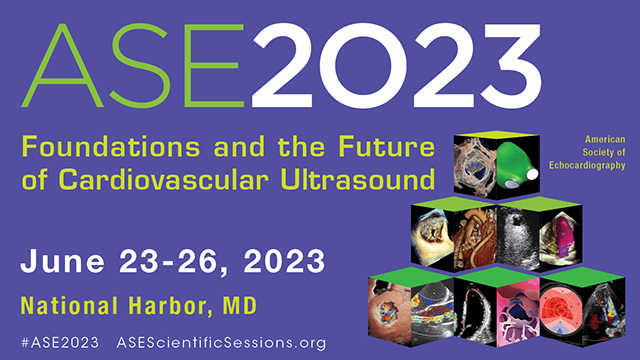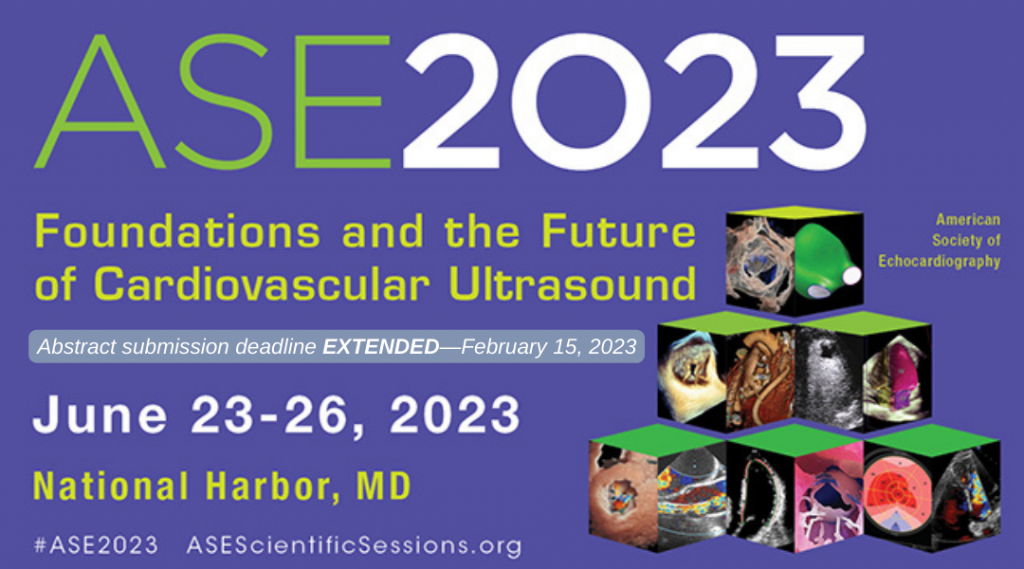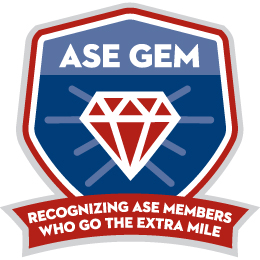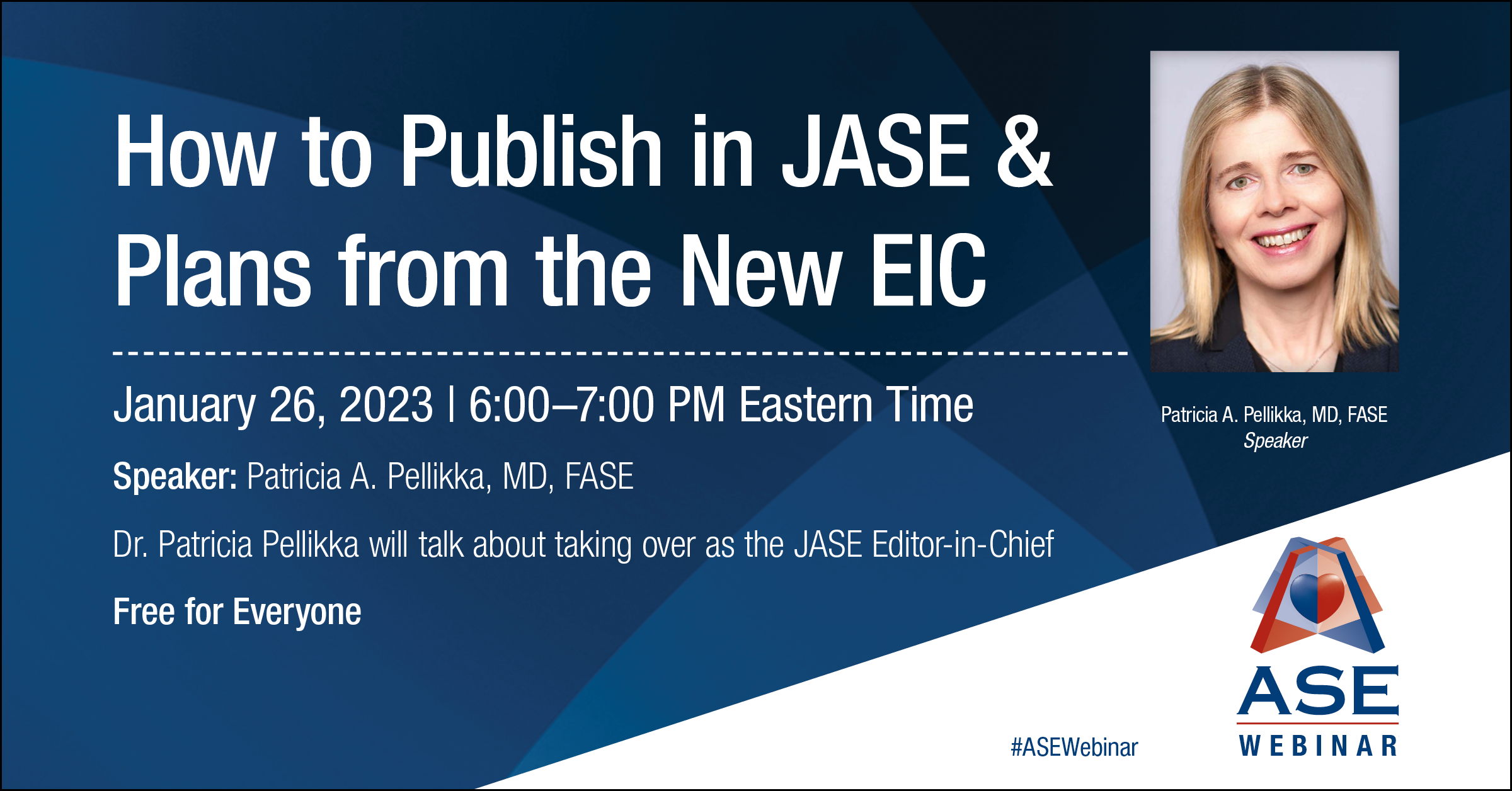
FOR IMMEDIATE RELEASE
Contact: Angie Porter
919-297-7152
APorter@ASEcho.org
American Society of Echocardiography Elects 10 New Members to its 2023-2024 Board of Directors
(DURHAM, NC, April 20, 2023)—The American Society of Echocardiography (ASE) is pleased to announce that its membership has elected 10 new Board of Directors members to serve the Society starting July 1, 2023. The new Board will be introduced at ASE’s 34th Annual Scientific Sessions in National Harbor, MD, from June 23-26, 2023.
The ASE Executive Committee welcomes newly elected Vice President David H. Wiener, MD, FASE, Thomas Jefferson University Hospital, Philadelphia, PA, who will serve a one-year term.
The following new Board members were elected to serve two-year terms: Craig Fleishman, MD, FASE, Arnold Palmer Hospital for Children, Orlando, FL (Pediatric and Congenital Heart Disease Council); Enrique Garcia-Sayan, MD, FASE, FACC, University of Texas Health Science Center at Houston, Houston, TX (Member at Large); Allison Hays, MD, FASE, Johns Hopkins University, Baltimore, MD, (Member at Large); Lanqi Hua, ACS, APCA, RDCS (AE, PE, FE) MS, FASE, Massachusetts General Hospital, Boston, MA (Member at Large); Sheela Pai-Cole, MD, FASE, Stanford University Medical Center, Palo Alto, CA (Perioperative Echocardiography Council); Lucy Safi, DO, FASE, Mount Sinai, New York City, NY (Leadership Academy Representative); Seda Tierney, MD, FASE, Stanford University Medical Center, Palo Alto, CA (Member at Large); and Susan Wiegers, MD, FASE, Lewis Katz School of Medicine at Temple University, Philadelphia, PA (Past President Representative).
Paul Mayo, MD, FASE, Northwell Health, New Hyde Park, NY (Critical Care Echocardiography Council) will serve a one-year term.
Previously elected members of the 2022-2023 ASE Executive Committee transitioning to a new position on the 2023-2024 Board are Theodore Abraham, MD, FASE, University of California San Francisco, San Francisco, CA (President-Elect); Benjamin W. Eidem, MD, FASE, Mayo Clinic, Rochester, MN (President); and Stephen H. Little, MD, FASE, Houston Methodist Hospital, Houston, TX (Immediate Past President).
Keith Collins, MS, RDCS, FASE, Northwestern Medicine, Chicago, IL, (Council Representative); Cynthia C. Taub, MD, MBA, FASE, Dartmouth Hitchcook Medical Center, Lebanon, NH, (Treasurer); and Kelly Thorson, DHSc, MSRS, ACS, RDCS, FASE, Lucile Packard Children’s Hospital, Palo Alto, CA (Secretary) will continue their service on the ASE Executive Committee through June 2024.
Directors continuing with their final year of service include Jose Banchs, MD, FASE, University of Colorado Anschutz Medical Campus, Aurora, CO (Member at Large); Akhil Narang, MD, FASE, Northwestern Medicine, Chicago, IL (Member at Large); Kian-Keong, Poh, MA, MMed, FRCP, FASE, National University Heart Centre, Singapore (International Representative); Fadi Shamoun, MD, FASE, Mayo Clinic Arizona, Scottsdale, AZ (Circulation & Vascular Ultrasound Council); Neha Ringwala Soni-Patel, Med, BSME, RCCS, RDCS (AE/PE), FASE, Cleveland Clinic Children’s Hospital, Cleveland, OH (Member at Large); and G. Monet Strachan, ACS, RDCS, FASE, University of California San Francisco, San Francisco, CA (Cardiovascular Sonography Council).
ASE thanks the following 10 Board members who will complete their service on June 30, 2023: Carolyn Altman, MD, FACC, FAHA, FASE, Baylor College of Medicine, Houston, TX (Pediatric & Congenital Heart Disease Council); Sujatha Buddhe, MD, MS, FASE, Seattle Children’s Hospital, University of Washington, Seattle, WA (Leadership Academy Representative); Anthony Gallagher, MHA, RDCS (AE, PE), FASE, Baptist Health Lexington, Lexington, KY (Member at Large); Arthur Labovitz, MD, FASE, Naples Cardiac & Endovascular Center (Retired), Naples, FL (Critical Care Echocardiography Council); Leo Lopez, MD, FASE, Stanford Children’s Hospital, Palo, Alto, CA (Member at Large); G. Burkhard Mackensen, MD, PhD, FASE, University of Washington, Seattle, WA (Perioperative Echocardiography Council) Susan Mayer, MD, FASE, Saint Luke’s Mid America Heart Institute, Kansas City, MO (Member at Large); Thomas Ryan, MD, FASE, Duke University Hospital, Durham, NC (Past President Representative); Vandana Sachdev, MD, FASE, National Institute of Health, Bethesda, MD (Member at Large); and Raymond Stainback, MD, FASE, Texas Heart Institute, Houston, TX (Immediate Past President).
About American Society of Echocardiography
The American Society of Echocardiography (ASE) is the Society for Cardiovascular Ultrasound Professionals™. ASE is the largest global organization for cardiovascular ultrasound imaging serving physicians, sonographers, nurses, veterinarians, and scientists and as such is the leader and advocate, setting practice standards and guidelines for the field. The Society is committed to advancing cardiovascular ultrasound to improve lives. For more information, visit ASE’s website ASEcho.org or social media pages on Facebook, Twitter, LinkedIn, or Instagram.
###

